In a record year for the event, in excess of than 3,000 delegates are expected in host city Chengdu, which has grown exponentially both in airline activity and GDP since it hosted Routes Asia in 2012.
View the first day of World Routes in pictures
Chinese dignitaries and representatives of the host city and wider Sichuan province got the proceedings underway at an opening ceremony attended by hundreds of Chinese media representatives, with some of the key figures also on hand to take part in the day-long Strategy Summit.
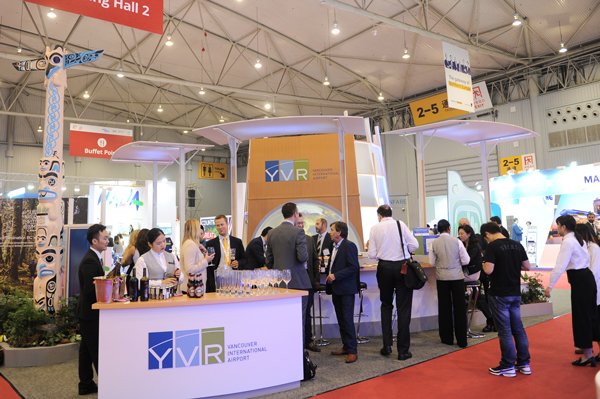 The main focus of the event is the 13,000 pre-arranged meetings, which enable airports and airlines to discuss the future of route development, and many more formal and informal meetings taking place at the conference and networking opportunities.
The main focus of the event is the 13,000 pre-arranged meetings, which enable airports and airlines to discuss the future of route development, and many more formal and informal meetings taking place at the conference and networking opportunities.
In addition a packed exhibition hall showcased some of the world's biggest airports alongside tourism and inward investment agencies. Entertainment provided at the stands for delegates was rich and diverse, including Thai boxers, traditional Chinese music, dancing, a Jägermeister bar and beatboxing.
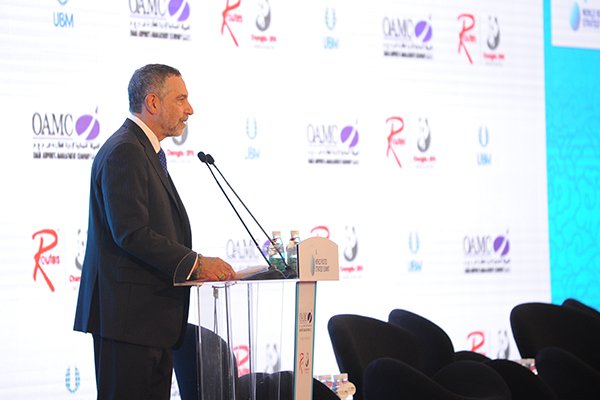 The Strategy Summit, which took place alongside the exhibition, featured some of the biggest decision makers and experts from the industry, and began with an address from Philip Chapnick, the group chief representative in China for UBM.
The Strategy Summit, which took place alongside the exhibition, featured some of the biggest decision makers and experts from the industry, and began with an address from Philip Chapnick, the group chief representative in China for UBM.
Chinese leaders followed, with Pan Ganjun, leader of Sichuan Province Airport Group, and Yang Hangbo, Leader of Sichuan Province, outlining the incredible progress made by the city and the wider region.
Dong Zhiyi, the leader of Civil Aviation Administration China, discussed the country's growth philosophy and the central role played by aviation. Read: Inside the Strategy Summit - key quotes from Chengdu.
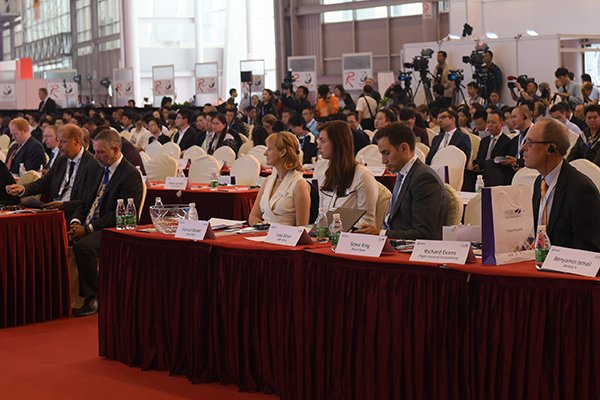 Richard Evans, senior consultant at Flight Ascend Consultancy followed, shedding light on the constraints and opportunities facing global aviation, and the morning session was finished by an expert panel on the similar themes of security, safety and capacity challenges. Read: Terminal ban on non-flying public an option for aviation security, Airlines wait to learn real impact of Brexit and Breaking down the barriers between airlines and airports.
Richard Evans, senior consultant at Flight Ascend Consultancy followed, shedding light on the constraints and opportunities facing global aviation, and the morning session was finished by an expert panel on the similar themes of security, safety and capacity challenges. Read: Terminal ban on non-flying public an option for aviation security, Airlines wait to learn real impact of Brexit and Breaking down the barriers between airlines and airports.
Participants were: moderator John Strickland, director, JLS Consulting; Peter Bellew, chief executive officer, Malaysia Airlines; Juha Jarvinen, chief commercial officer, Finnair; André van den Berg, executive vice president and chief commercial officer, Schiphol Group; Vinoop Goel, Asia-Pacific regional director of airport, passenger, cargo & security department, IATA; Susan Kurland, deputy commissioner for air service development, Chicago Department of Aviation; Tewolde Gebremariam, chief executive officer, Ethiopian Airlines; and Brian Hedberg, director, office of international aviation, US DOT.
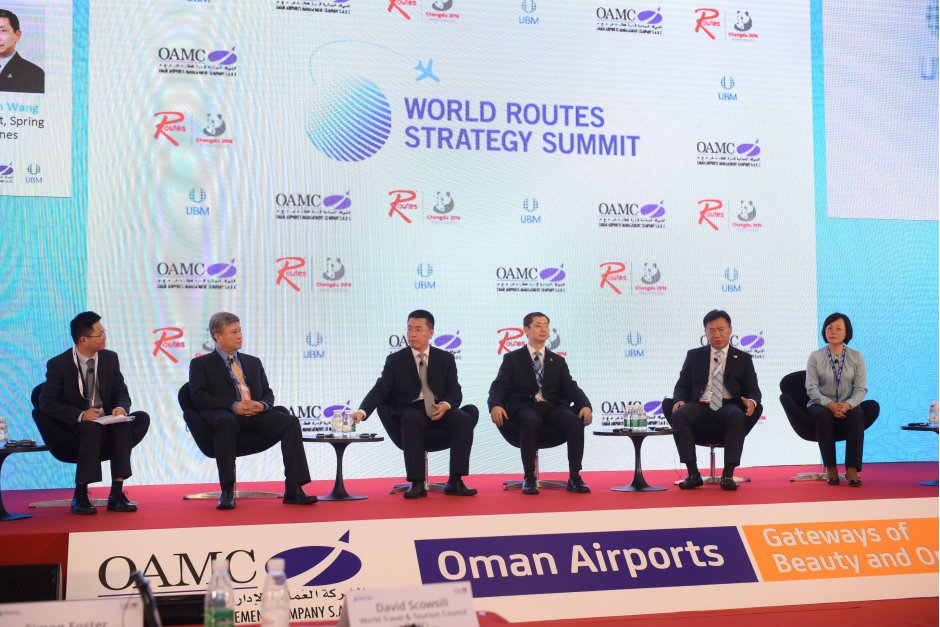
The final morning session was titled The Asian miracle – where do we go from here? Participants were moderator Dr Zheng Lei, President, Institute for Aviation Research; Stephen Wang, President, Spring Airlines; Hou Wei, vice president, Hainan Airlines; Zhu Songyan, assistant president, Air China; Li Dianchun, chief commercial officer, Hong Kong Airlines; and Wei Zhang, commission for discipline inspection, Sichuan Airlines Group.
After lunch the event resumed with a fascinating insight into running an Asian airline with Peter Bellew, chief executive officer of Malaysia Airlines, who discussed how the rise of China has reshaped the industry and the potential for future growth. Read: Malaysia Airlines plans possible A380 wet-lease operation.
The first afternoon panel session discussed the major issues facing the industry and included moderator Jeremy Robinson, partner, Watson Farley & Williams LLP; John Grant, director, JG Aviation Consultant; Yolanta Strikitsa, director, Strikitsa Consulting; Howard Mann, vice president , Campbell Hill Aviation Group; Robert Hill, vice president , Seabury, and Edmond Rose, vice president, ICF International. Read: An industry opinion - the consultant's viewpoint.
Asia-Pacific regional director of airport, passenger, cargo & security department, IATA, was next with an update on the economic value of aviation, helping the audience to understand the wider value of routes.
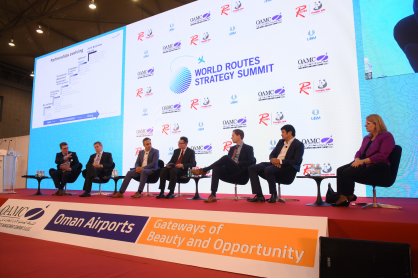
And the final afternoon panel session explored the ways in which airlines can work in partnership to access new markets. Taking part were moderator Nigel Mayes, senior vice president, consulting & product development, ASM; Evert Meyer, head of international network and strategy, Qantas; Benyamin Ismail, chief executive officer, AirAsia X Berhad; Marco van Vliet, head of network & alliances, Kenya Airways; Philip Lewin, head of alliances & partnerships, Finnair; and Aboudy Nasser, senior vice president network and revenue management, Oman Air.
And the final session of the day was held by Steve King, chief executive officer of Black Swan, who discussed the possible role of artificial intelligence in the aviation industry and how it could potentially be used to predict future profitable routes. Read: Could artificial intelligence help to create new routes?
